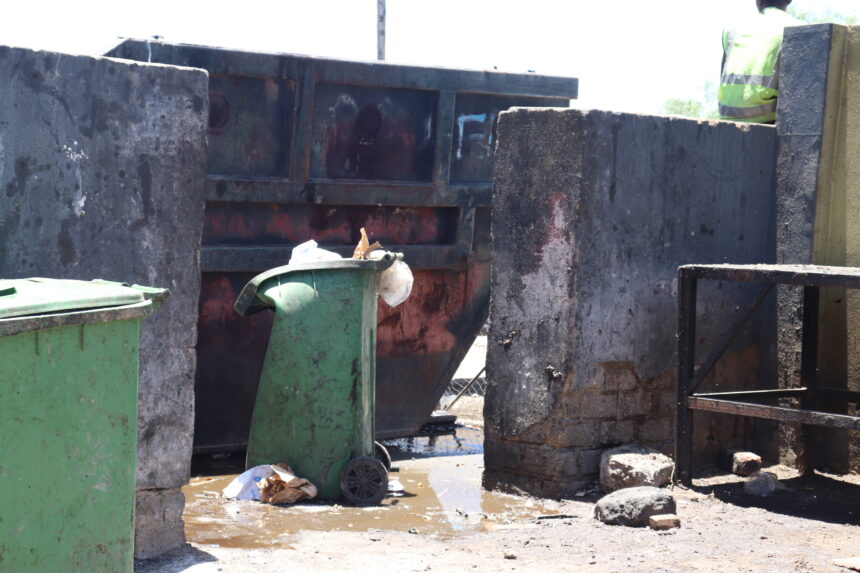The Single Quarters’ open market in Katutura Central, also known as ‘Kapana’ area, is a place in disarray with hygiene and safety issues threatening both businesses and customers.
Speaking to New Era recently, the market’s cleaning team supervisor Elvis Meintjies outlined the numerous challenges they face daily in trying to maintain hygienic standards at one of Windhoek’s busiest open markets.
“The hygiene issues here are serious. People throw away rotten meat, fat and even cow hides, which adds to the health risks for my team and anyone working here.
It’s a constant battle, and we’re doing our best to keep the place as clean as possible, but the conditions are not conducive”, he stressed.
The market, one of the largest in the Khomas region, is plagued by blocked drains and overflowing waste. Improper disposal of food scraps such as porridge, tomatoes and onions has led to constant pipe blockages.
“The waste clogs the drainage system, and it’s a major concern. There are flies all over the place, especially near the meat stalls. People are buying meat with flies on it — it’s a health risk”, stated Meintjies.
In addition to the sanitation issues, the market’s toilet facilities are out of order and in urgent need of repair.
The toilets are frequently vandalised, with doors broken and other fittings stolen.
“Men are going into the women’s toilets because the doors in theirs are broken. This is not only a hygiene issue, but a serious safety concern,” Meintjies added.
He warned that without intervention, the situation could escalate, potentially leading to criminal incidents.
The supervisor likewise pointed out the significant costs involved in repairing the market’s infrastructure, including the plumbing and toilet facilities.
“We need new doors and better plumbing to fix the toilets and prevent further damage. If these issues are not addressed soon, it could lead to even more problems.”
Meintjes stressed the importance of the market to the community, noting that it serves as a key commercial and social hub for the area.
“This is the biggest market in the region, but it’s not being properly maintained. For the future of this market and the people who rely on it, we need action from the City of Windhoek (CoW)”, he continued.
Despite the ongoing challenges, the team continues working tirelessly to keep the market clean.
A letter outlining the issues has been drafted, and Meintjes hopes it will prompt the CoW to address the urgent need for repairs and improvements there.
One of the rare times that saw the market become spotlessly clean was during the height of the Covid-19 pandemic when hygiene was one of the chief interventions to curb the deadly spread of the virus which brought businesses to their knees and saw millions of lives lost globally.
-isipunga@nepc.com.na



